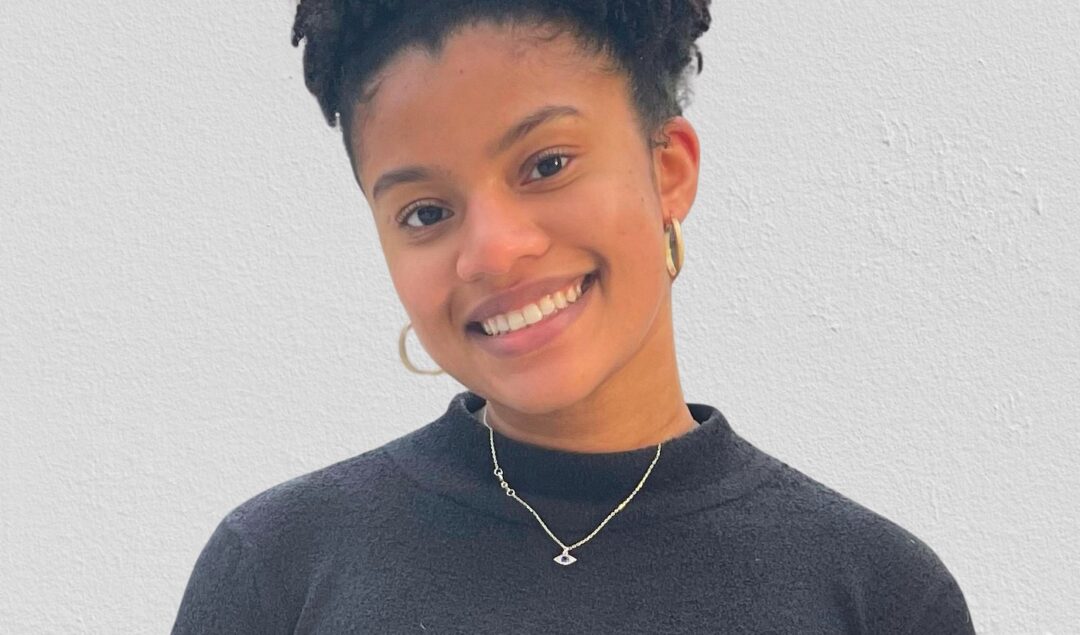Interview: Meet The NASA Software Engineer Intern Who Wrote A Kids’ Book About Black Women In STEM

Nia Asemota is a self-taught programmer interning at NASA as a software engineer. Despite being 21 years old, Nia has dozens of accolades behind her back. From collaborating with Black Girls CODE as a technical instructor, being a Game Design TA at the City College of New York’s free STEM Institute, to launching her own kids’ book about Black women engineers.
She’s doing it all.
But her journey has not been as smooth sailing as some might assume, as she’s had to navigate being one of just a few girls in her robotics class and being the only Black woman in her college course.
An April study by the Pew Research Center revealed that 7% of STEM bachelor’s degrees were earned by Black students in 2018. Although white men still dominate the profession in the US (only 5% of engineers are African-American, and only 13.4% are women of any race, according to one 2011 report) – these stats did not stop Nia from pursuing her dreams.
POCIT sat down with the Gen Z to talk about tech, imposter syndrome, and community-building power.
Three words to best describe you?
Passionate, self-driven, and creative.
You’re still relatively young, and you’ve gone straight into the STEM route – am I correct to assume you’ve always wanted to get into this field, or was it something that just happened?
It’s something that I stumbled across. I’m Nigerian and Puerto Rican – so growing up, it was already assumed that I would become a doctor because it’s a very financially stable job opportunity that would help support my family, and I loved biology throughout middle school.
So, I thought, okay, I’ll be a doctor and see if that is something that I can see myself doing.
But then, my mom encouraged me to join the robotics team in high school. I was one of five girls and the only girl of color, and on top of that, I had no experience with coding, electrical engineering, or mechanical engineering. But, after a while, I fell in love with it, even though the first two years were difficult because I didn’t know what to do.
I didn’t like that the girls were assigned tasks like cleaning up the toolbox […] while the boys had a very hands-on role. So when I was in junior year, I was like, no, I want to be more hands-on because I want to have more of a lasting impact on the team.
So, I went to YouTube and just showed myself how to code and introduced myself to electrical engineering and mechanical engineering. It was so fun just being so hands-on and contributing to building a robot. And that was a huge turning point for me because I was like, oh my God, I love engineering.
So, I studied computer science and biomolecular science and then secured my first internship at NASA.
Amazing! What were some of the challenges you have encountered in your junior career so far?
A massive barrier to the field is the language that’s being used. So, for example, to be completely transparent, I’ve taken computer science classes at school and haven’t gotten the best grades in them because that learning style wasn’t for me, and by that, I mean the lecture style isn’t for me.
So, I went online on YouTube and found a lot of projects and seminars that are taught in the best way for me.
I would say one of the hardest things aside from the curriculum and the courses – because that is challenging – is finding that community and support to stay within the field because it’s easier when you have friends to rely on and that support system. But in some of my classes, there were 200 students, and I was the only person of color.
Is that why you created your kids’ coloring book – so you could encourage young girls and educate them on the Black women engineers, both past and present?
Yes! It’s hard to find that representation or connection to your professors within the tutoring center or to other students in your class when they come from a completely different background than you. Often, it feels very isolating and lonely.
When I joined other organizations like NSBE and Black Girls Code, I realized the community is there, and I wanted to make this coloring book so that young people felt seen, heard, and represented.
If I’m honest, I also think not many women of color see themselves as role models when they are – so, within the coloring book, I highlight 15 Black women in STEM that you may or may not have heard about.
You mentioned this book had been shipped worldwide?
Yes! From India and the UK to the USA. I’ve also been working with other organizations to get the book to students. The other day, someone bought like 100 books and helped me distribute them to local libraries and children’s hospitals, foster care, and other elementary schools.



